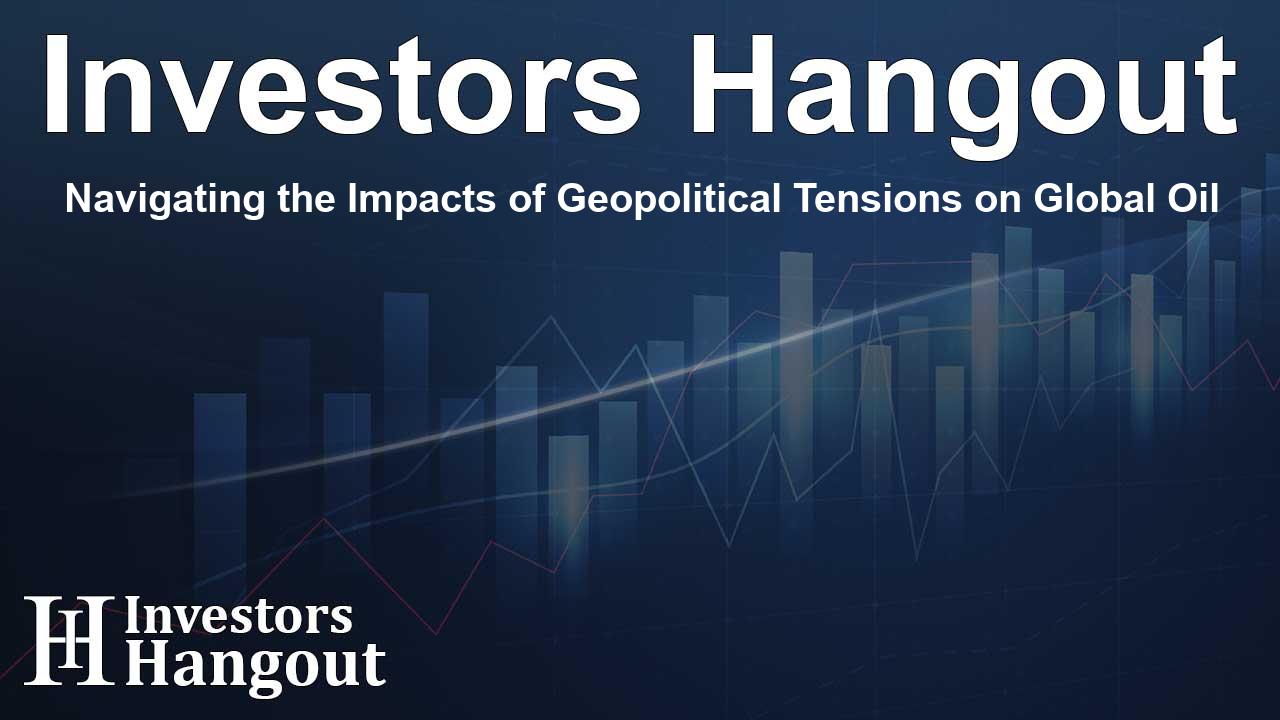Navigating the Impacts of Geopolitical Tensions on Global Oil

Geopolitical Tensions and Their Impact on Oil Supply
Recent geopolitical dynamics have brought a renewed focus on oil supply stability. The potential for significant disruptions, particularly involving Iranian oil production, has raised alarms across global markets. Analysts are increasingly contemplating how OPEC+ could cushion the blow from any drastic loss of supply.
The Role of OPEC+ in Supply Management
OPEC+ stands ready to respond if there is a collapse in Iranian oil production. This organization has demonstrated its ability to manage spare capacity effectively, particularly in crisis scenarios. Reports indicate that OPEC+ has enough excess oil capacity to compensate for the loss of Iranian exports, which currently account for approximately 3% of the global oil market. Should Iran's oil facilities come under attack, OPEC+ producers could ramp up their output significantly.
Key Players in the OPEC+ Alliance
OPEC+, which is a coalition of OPEC members and allied nations such as Russia and Kazakhstan, has been actively engaged in adjusting oil production to stabilize the market amid fluctuating demand. With a combined capacity to increase production by several million barrels per day, particularly through Saudi Arabia and the UAE, OPEC+ has a strategic advantage in navigating potential supply shocks.
Assessing Iranian Oil Exports Amid Rising Tensions
Despite facing U.S. sanctions, Iranian oil exports have seen a remarkable resurgence, climbing to around 1.7 million barrels per day. Chinese refiners are currently the largest buyers of this oil, which highlights the complexities surrounding Iranian supply. The international landscape surrounding oil supply is heavily influenced by such geopolitical relationships, further complicating projections in the oil market.
Potential Escalations and Market Reactions
If conflict escalates, the region’s oil infrastructure could be at risk, and the consequences could resonate across global markets. Analysts warn that while OPEC+ has ample capacity to respond to loss of supply, successful implementation would hinge on the stability of the region. The possibility of attacks on oil facilities raises concerns that available capacity might be overstated. Analysts suggest that renewed assaults on energy installations could squeeze the available extra capacity significantly.
The Historical Context of Conflict in the Region
The Iran-Iraq War in the 1980s serves as a historical reminder of how regional conflicts have historically impacted oil supply dynamics. The legacy of these conflicts reminds stakeholders of the vulnerability of key oil facilities, such as the Kharg Island port, which is critical for Iranian exports.
Wider Implications for Global Oil Prices
In the event of a broader conflict that hampers production, global oil prices could experience a rapid surge, impacting economic conditions worldwide. U.S. oil production, which represents a significant portion of the global supply, plays a pivotal role in offsetting potential shortages. However, should the Middle East face extensive disruptions, prices could skyrocket, translating to higher fuel costs for consumers.
Looking Ahead: Strategic Considerations
Looking forward, the entire oil market will remain on high alert, particularly with upcoming political events that could influence U.S. energy policy. Conservative predictions suggest that the United States may strive to maintain a steady approach to avoid escalating tensions further. A balance between geopolitical influence and energy output remains crucial to sustaining equilibrium in oil markets.
Frequently Asked Questions
How might OPEC+ respond to a disruption in Iranian oil supply?
OPEC+ has the capacity to compensate for lost Iranian oil output by increasing production from member states like Saudi Arabia and the UAE.
What is the significance of Iranian oil exports in the global market?
Iranian oil, accounting for about 3% of global supply, plays a critical role, particularly due to its rising exports to countries that do not recognize U.S. sanctions.
How could escalating tensions impact oil prices?
An escalation could lead to significant increases in oil prices, affecting economic conditions and resulting in higher costs for consumers globally.
What has been the historical impact of conflicts in the Middle East on oil supply?
Past conflicts, such as the Iran-Iraq War, have disrupted oil supplies and drawn attention to vulnerabilities in the region's infrastructure.
What strategies might the U.S. employ to manage rising oil prices?
The U.S. may push for a measured response to conflicts to avoid exacerbating tensions and influencing oil prices adversely.
About Investors Hangout
Investors Hangout is a leading online stock forum for financial discussion and learning, offering a wide range of free tools and resources. It draws in traders of all levels, who exchange market knowledge, investigate trading tactics, and keep an eye on industry developments in real time. Featuring financial articles, stock message boards, quotes, charts, company profiles, and live news updates. Through cooperative learning and a wealth of informational resources, it helps users from novices creating their first portfolios to experts honing their techniques. Join Investors Hangout today: https://investorshangout.com/
Disclaimer: The content of this article is solely for general informational purposes only; it does not represent legal, financial, or investment advice. Investors Hangout does not offer financial advice; the author is not a licensed financial advisor. Consult a qualified advisor before making any financial or investment decisions based on this article. The author's interpretation of publicly available data shapes the opinions presented here; as a result, they should not be taken as advice to purchase, sell, or hold any securities mentioned or any other investments. The author does not guarantee the accuracy, completeness, or timeliness of any material, providing it "as is." Information and market conditions may change; past performance is not indicative of future outcomes. If any of the material offered here is inaccurate, please contact us for corrections.